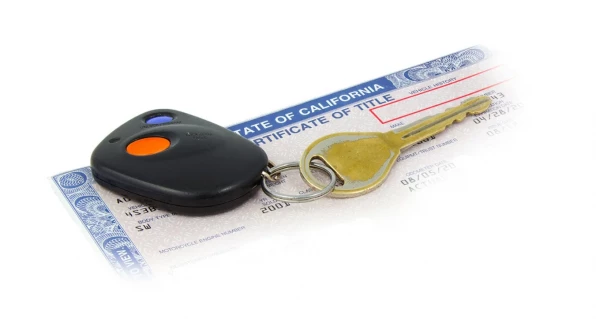Según el estudio más reciente del Insurance Information Institute, alrededor del 13% de los conductores no tienen seguro de automóvil. Si ha comprado un automóvil nuevo recientemente, es posible que no se dé cuenta, pero también podría ser un conductor sin seguro.
Cuando compra un vehículo, no se agrega automáticamente a su plan de seguro. El anterior tampoco se quita instantáneamente. Tienes que solicitar una transferencia de seguro de coche.
Para saber cómo y por qué debe realizar una transferencia de seguro poco después de obtener un vehículo nuevo, siga leyendo.
Por qué el seguro de automóvil es esencial
En 48 de los 50 estados, es ilegal conducir sin seguro de automóvil. Virginia y New Hampshire son los únicos dos estados que ofrecen condiciones alternativas. En Virginia, debe pagar una tarifa anual de $ 500 y New Hampshire aumenta sus tarifas de responsabilidad.
Si bien puede parecer una excelente manera de reducir sus gastos, no tener un seguro de automóvil probablemente podría costarle a largo plazo. Hay una multa diferente en cada estado para las personas a las que se les descubre conduciendo sin seguro.
Por ejemplo, si no puede mostrar prueba de seguro en California, debe pagar una multa de $ 100 a $ 200. Si lo atrapan sin él nuevamente, ese número aumenta a al menos $ 200 y el estado puede incautar su vehículo.
La compra de una cobertura integral significa que la compañía de seguros lo ayudará con los daños a su automóvil que estén fuera de su control, como robos, tormentas e incendios. Si desea reparar su automóvil si causa un accidente, debe obtener cobertura de collision
Recuerde que cuando reparen su automóvil, primero deberá pagar su deducible, que elegirá cuando compre su seguro. La aseguradora pagará el resto hasta el valor del automóvil.
La responsabilidad se paga hasta el límite que elija, con un mínimo según las leyes estatales. Si no tiene seguro y causa un accidente, corre el riesgo de ser demandado por la persona a la que golpeó y deberá pagar las reparaciones y lesiones de su propio bolsillo.
Veintiún estados permiten la protección contra lesiones personales, que incluye los gastos médicos de los pasajeros lesionados. Para aquellos con familias, esta opción puede brindarles tranquilidad.
Cuando tiene un seguro de automóvil, nunca tiene que preocuparse por meterse en problemas legales. Además, puede preocuparse menos por el riesgo financiero que conlleva conducir sin él.
Por qué es importante una transferencia de seguro
Cuando venda su automóvil, querrá quitarlo de su seguro lo antes posible. Después de la transferencia de propiedad, si el nuevo propietario sufre un accidente automovilístico y el vehículo sigue figurando en su seguro, usted será responsable de las reparaciones.
Obtener un auto nuevo en un concesionario le brinda la oportunidad de transferir su seguro incluso antes de dejar el lote. Sin embargo, cuando compra un vehículo en línea o de un vendedor individual, deberá hacerlo en su propio tiempo.
Cómo transferir un seguro de automóvil

Hay cuatro datos que necesitará cuando realice la transferencia de su seguro de automóvil. Esa información incluye el registro y el título, el año, la marca y el modelo, el número de identificación del vehículo (VIN) y la lectura del odómetro.
Mientras transfiere el seguro, también puede actualizar si es necesario. A veces, las personas actualizan su plan porque anteriormente compraron un seguro de automóvil barato y ahora quieren una cobertura de responsabilidad adicional. Pregúntele a su empresa acerca de cambiar su plan y luego obtenga una cotización para ver cuánto costaría.
Cantidad de tiempo que tiene para realizar la transferencia del seguro
Un período de gracia es la cantidad de tiempo que tiene para transferir su seguro a su nuevo automóvil y varía según su aseguradora. Normalmente, el período de gracia dura entre una semana y un mes. Busque sus pólizas de antemano para ver cuánto tiempo tiene para actualizar su seguro.
Si tiene un accidente durante el período de gracia, se aplicará la cobertura de su póliza. Si no tenía la cobertura integral y de colisión en la lista, no podrá reparar su automóvil con su seguro.
Haz tu investigación
Siempre se recomienda investigar antes de comprar un automóvil porque desea negociar las mejores ofertas posibles. Además, desea conocer todos los detalles sobre la historia del automóvil antes de comprarlo.
Desafortunadamente, algunos vendedores mentirán sobre el historial de manejo para persuadirlo de que compre el automóvil. Para evitar que esto le suceda, utilice un proveedor de datos del Sistema Nacional de Información de Título de Vehículos Motorizados. Aquí en EpicVIN, realizaremos verificaciones de antecedentes del automóvil que desea comprar para asegurarnos de que tenga información precisa sobre su historial.
Precios de seguros
Una vez que haya reducido sus opciones, comuníquese con un agente de seguros para tener una idea de cómo un automóvil nuevo afectará el costo de su plan. Hay algunos factores que considerarán cuando elaboren una cotización de seguro de automóvil. El primero es la marca y el modelo del automóvil.
Los autos de lujo, los autos deportivos y los autos eléctricos aumentarán la tasa de seguro de su auto. Debido a que son costosos, a la compañía de seguros le costará más repararlos.
Una aseguradora también considerará qué tan bien funciona el vehículo en su inspección de seguridad. Si saben que el automóvil puede soportar impactos y hace un excelente trabajo para mantener a sus pasajeros seguros, entonces es más probable que le ofrezcan una tarifa más baja que si no se probara bien.
Algunas bases de datos realizan un seguimiento de la frecuencia con la que las personas roban ciertos automóviles. Cuanto más alto sea el rango del automóvil, mayor será la tasa de su seguro. Investigue qué automóviles son más susceptibles a robos antes de comenzar la búsqueda de automóviles para evitar pagar más por su seguro.
Otros factores cruciales incluyen el puntaje crediticio, la edad y el código postal. Una vez que sepa qué afecta una tasa de seguro, solicite cotizaciones de seguros de automóviles de diferentes compañías y haga una tabla comparativa de seguros de automóviles para ver dónde obtendrá la mejor oferta.
Perfeccione sus habilidades de compra de automóviles
Ahora que comprende lo crucial que es completar una transferencia de seguro cuando compra un automóvil nuevo, estará listo para llevar su nuevo vehículo a la carretera en poco tiempo.
Si aún no ha comprado uno y se inclina por un vehículo usado, comuníquese con nosotros con cualquier pregunta que pueda tener sobre nuestros servicios. Nuestro decodificador VIN lo ayudará a encontrar un automóvil confiable, uno que podrá conducir en los próximos años.
Preguntas frecuentes
Sí, si has pagado tu prima de seguro de auto por adelantado y cancelas antes de que termine el período de la póliza, generalmente tienes derecho a un reembolso. La cantidad reembolsada dependerá de la política de reembolso de la compañía y si se aplican tarifas de cancelación.
Cancelar el seguro del coche anticipadamente puede tener consecuencias, como tarifas de cancelación y posibles brechas en tu historial de cobertura, lo que podría afectar las primas futuras.
No, cambiar de proveedor de seguros de coche no afecta directamente tu puntuación de crédito. Las compañías de seguros no informan tus pagos ni el estado de la póliza a las agencias de crédito.
Sí, puedes cambiar tu seguro de coche antes de la fecha de renovación. Sin embargo, ten en cuenta las posibles tarifas de cancelación o términos específicos descritos en tu póliza actual.







